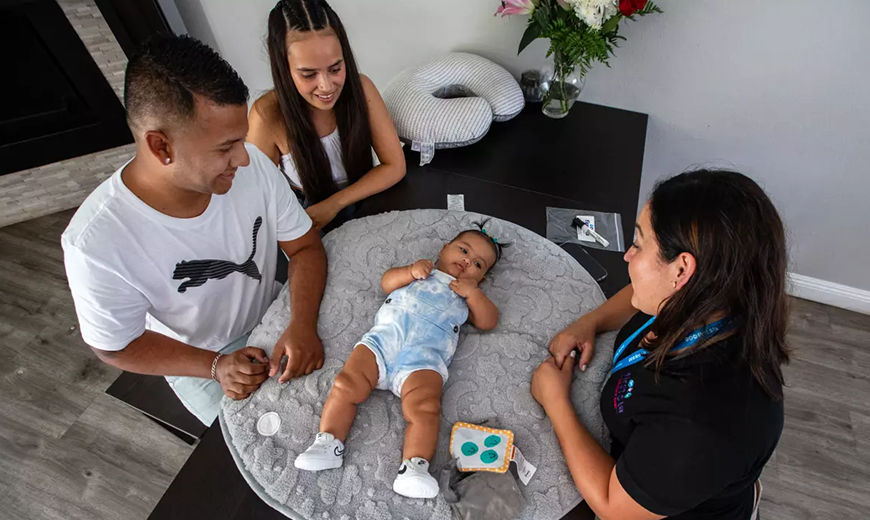- Home
- /
- Research Topics
- /
- Home Visiting Programs
Home Visiting Programs
Home visiting programs provide support and education to parents in the home through a trained professional (e.g., nurse or social worker) or paraprofessional. These programs have expanded rapidly over the last decade as a state-based investment in supporting parents and children.
Featured Resource
Participation in evidence-based home visiting programs leads to small but positive impacts on parenting skills; these effects exist within the context of many more null findings. Impacts are inconclusive across program models on other important child and family outcomes, including birth outcomes, child maltreatment, and child health.
Related Resources
- Blog
- |
This is a guest post by Kim Gilsdorf, a Program Officer for the Perigee Fund, a national philanthropy committed to prenatal-to-age-3 mental health. I work with organizations that support the mental health of families every
States and community organizations can increase awareness of credits. Increasingly, the state and federal government use tax credits, such as the child tax credit and the earned income tax credit, to support families with low
Evaluating Texas’s in-kind and monetary assistance during COVID-19 To promote nurturing and responsive parent-child relationships and healthy home environments, states can offer home visiting programs to expectant and new parents with young children. During the
- Blog
- |
State lawmakers face difficult choices about how to use scarce public resources. To ensure that investments have a big impact on young children, lawmakers often want to know—which policies actually work? The Prenatal-to-3 Policy Impact
- News
- |
National analysis for resources available for children 3 years old and under has placed North Carolina among the worst five states in the nation. The data gathering happened after lawmakers agreed to Medicaid expansion but
- News
- |
California voters eked out a win for children more than two decades ago based on a “sin tax.” Proposition 10 slapped cigarettes with a hefty surcharge to pressure smokers to give up their habit and







